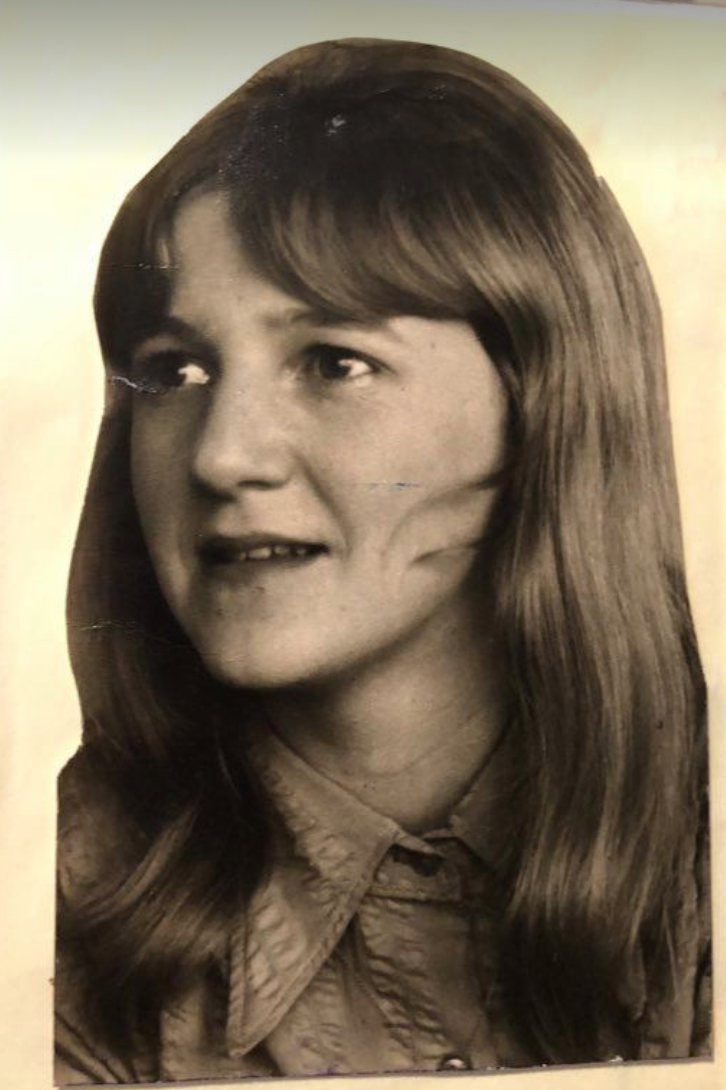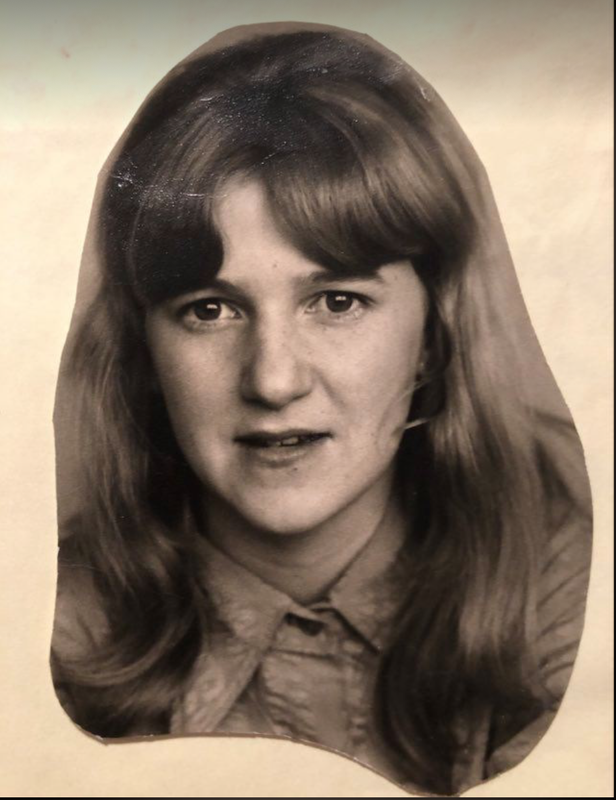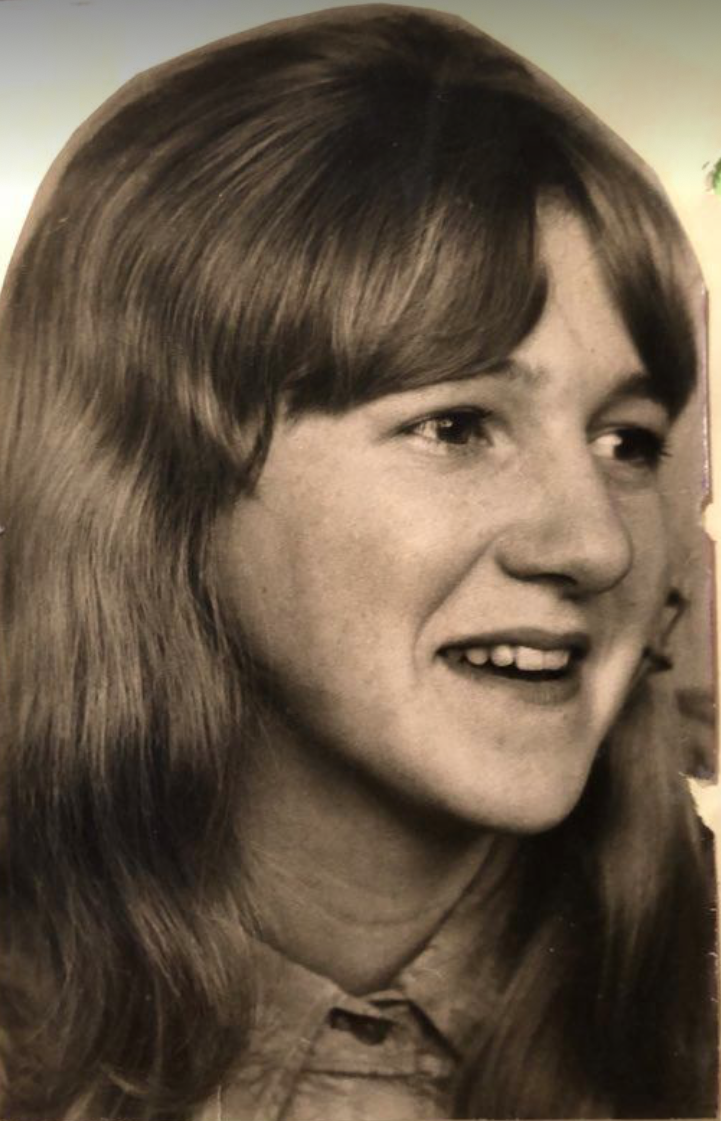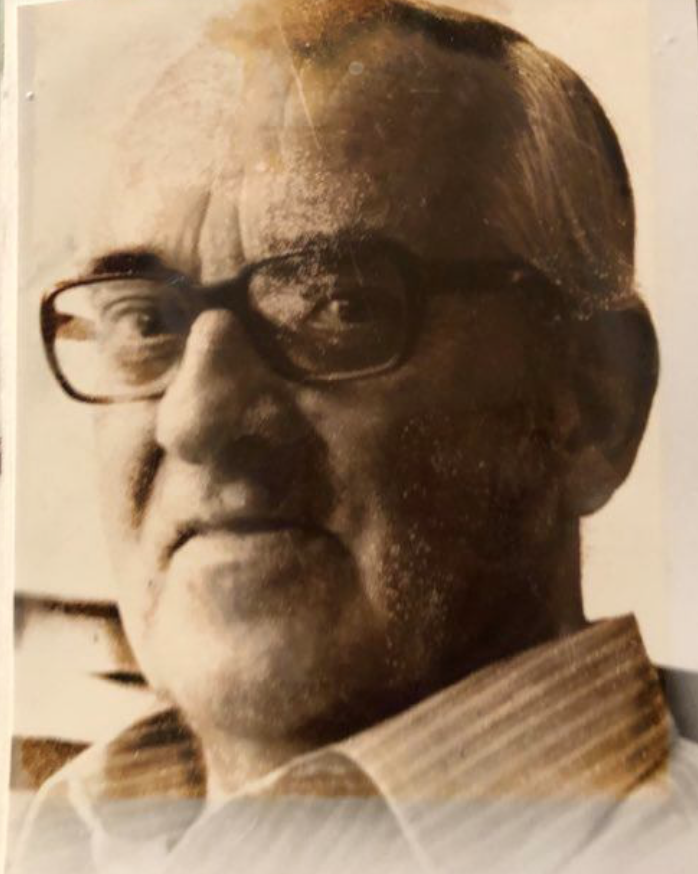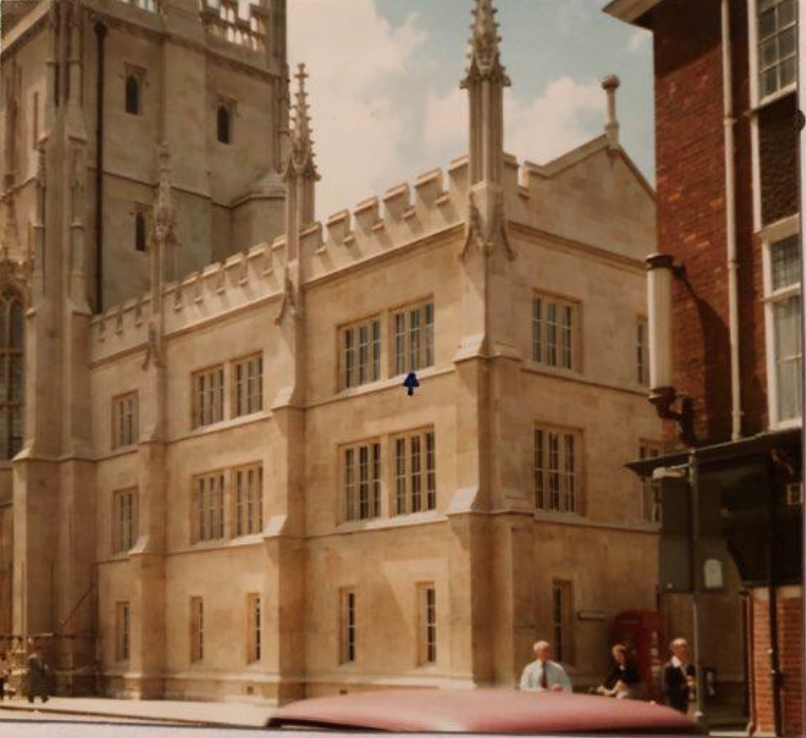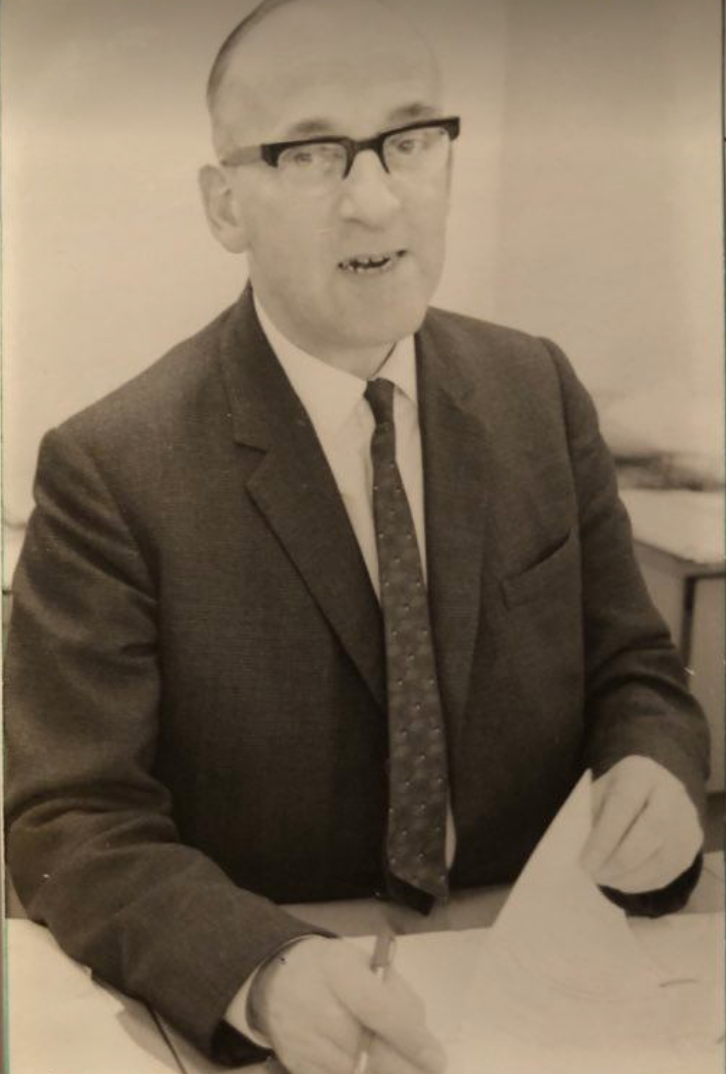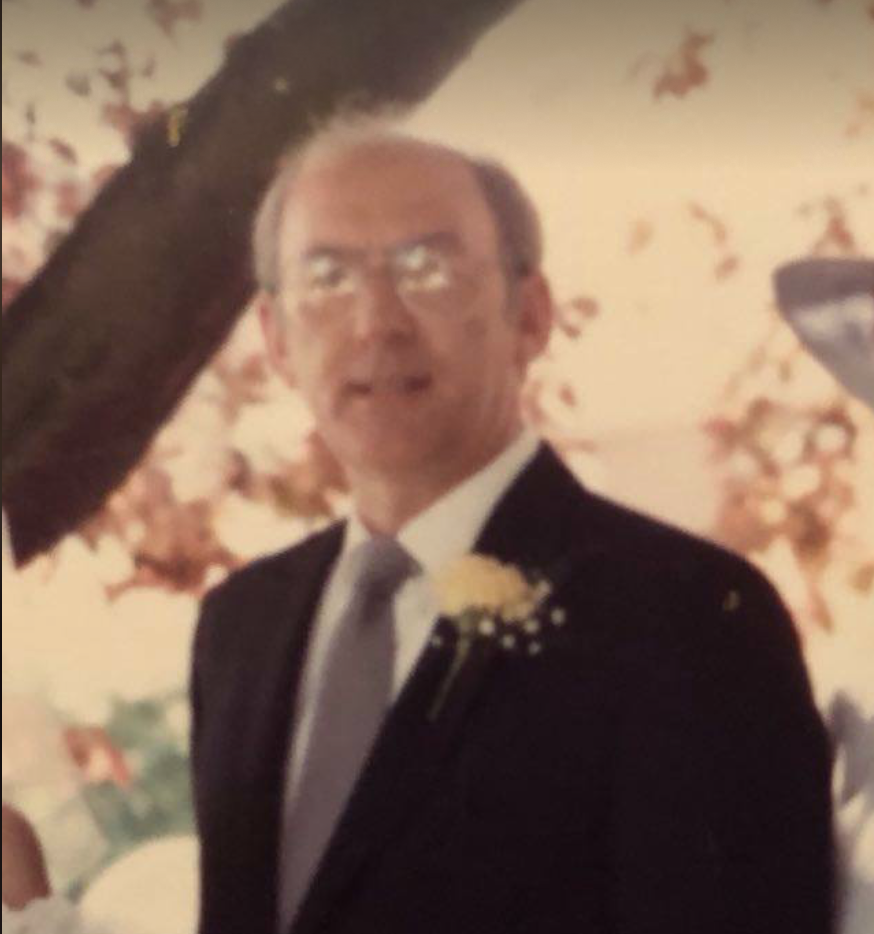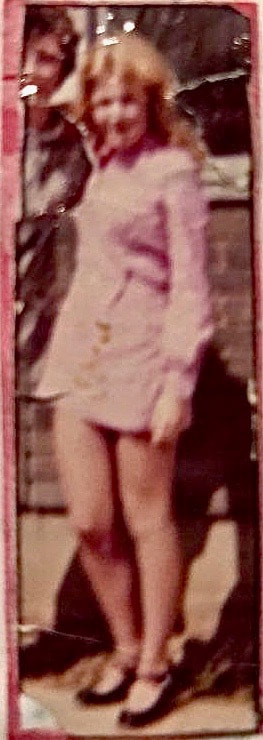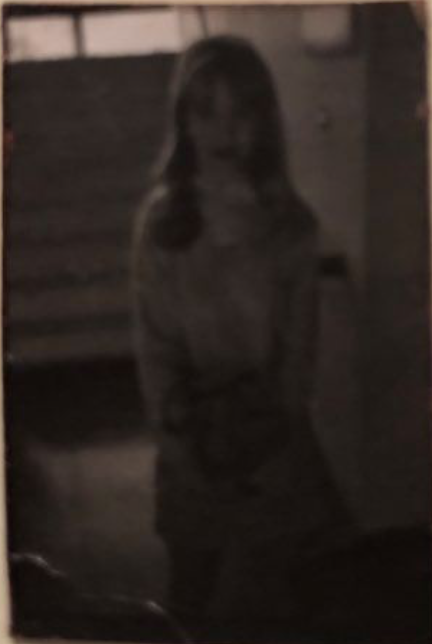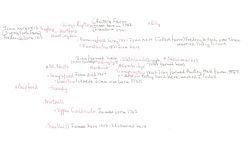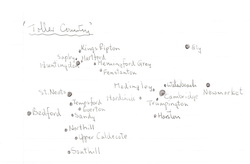|
Cambridge University Press Memories by Elizabeth Toller-Brown, I started work at Cambridge University Press (C.U.P.) in August 1968, in the ‘Assessors’ office; a section of the accounts department. I was just seventeen years old. This was the start of a big adventure for me and it continued for the next three and a half years. During this time, I grew up, had great fun, in so many ways and made more mistakes than I care to mention, but all in all, it was generally a happy time. I left before big changes took place there and I am glad I did! I had enjoyed some of the best years C.U.P. had to offer. In my time there, I worked just a few offices from my beloved father, Eddie Toller. He had worked at the old C.U.P. building, in Trumpington Street, from the age of fifteen and had worked his way up to become one of the managers and ‘Production Liaison Officer.’ In my father’s previous office, in the front corner of the second floor of the old Pitt Building, he had a huge wooden desk; full of interesting things like putty rubbers, that a child like me could squeeze and squash and a swivel chair, which I could spin around on, when I went into ‘town’ and called in to see Dad. Across the road from this lovely old building was a hairdresser’s shop; Reid’s. One day, for fun, the employees lifted the cover off the man hole in the path and kept popping a hairdresser’s dummy head out, much to the surprise of passers by! This was one of the amusing tales Dad told us, when he cycled home, had his dinner (including a dessert), a lie down on the bed and then cycled several miles back to work! We lived in Netherhall Way and I don’t know how he did this, but he was very fit! He had done the same when we lived in Oxford Road, until 1954. It was much easier for Dad to cycle to and from work when the new building opened in Shaftesbury Road, in 1962. I had not been able to take the eleven plus exam, as I was in hospital at the time (another story!) and I felt cheated, as they had said I was “university material” and going to college had been my childhood dream. From my later years at secondary school, I determined to work at the new ‘Press’ with my father and my brother-in-law, Mick Brown. Several of my mother’s Hatchman cousins also worked there, but at that time, I did not know them. When I eventually got a job at the Press, after doing two other mundane jobs, to pass the time of waiting, I found that my office was on the second floor, near my Dad’s. I was to be surrounded by a number of other ladies, mostly around my own age and our poor male boss, Jack Whybrow, had his desk at the back of our office. What goings on he had to endure each day! He was such a quiet, gentle man, nearing retiring age. All of the offices and workrooms were built around a square of gardens, with other workrooms leading off on one side. This meant that we could look out of our office window and see people across the way; great fun for them and us; we fun-loving, giggly girls! One day, I was about to go on one of my walk-arounds, to take papers to other work departments like ‘Compositors’, ‘Readers’, ‘University’, etc. when my friend, Tina Leland, put her black cardigan over her head and a white band across her forehead and sat in my chair near the window, telling me to tell those in the opposite room that we now had a nun working in ‘Assessors’ and of course, they then looked up to see if they could see her! Tina sat there singing ‘Ave Maria’ and saying she was ‘Mother Inferior’! That was just one fun time I remember. We were paid on the 28th of each month and my friend, Carol Hurst, and I would go to town in the lunchtime, on pay day, get some cash out and go shopping in the ‘Alley’ boutique in Falcon Yard, to ‘Primavera’ gift shop on King’s Parade and on the market. I sometimes bought gifts for my Mum and maybe pear drops or sherbet wafer rounds for my Dad, which he enjoyed eating from his desk drawer. Of course, we also bought L.P. (long-playing) records, too. The other lunch-times were usually spent in the large staff canteen, eating cheese rolls, or we might go for a walk to nearby Finches Walk or somewhere local. On Friday evenings, Carol and I would go to the Press discos in the Pavilion, which was then a very small building in the grounds. The disco was run by three of the apprentices, whose work I mainly dealt with; Barry Reynolds, Graham Cherry and Roy Fabb. It was, of course, called the R.C.F. Disco! ‘My’ apprentices included Barry Reynolds, Roy Randall, Graham Cherry, Roy Fabb, David Pearson, Alan Pell-Coggins, Graham Pegg, Noel Woodgate and Roger Thwaites. I also had to assess how long jobs would take for those in ‘Comps’ (Compositors), ‘University’ and ‘Journals’ departments. The men often tried to get me to give them longer time to do jobs, so that they could get more bonus minutes! I enjoyed working out the times for jobs and I could spot mistakes on proofs easily. Carol and I loved these wonderful times. We dressed in the latest fashions and wore quite a bit of make-up, which we took great care applying! We loved dancing at the discos and were pleased when reggae and bubblegum music came along, enjoying these, as well as the usual soul and pop music. In those days of the late sixties to early seventies, bands were always called ‘groups’ and bands were a larger company, playing ballroom, jazz, classical music, or whatever Another use for the Pavilion was as a rehearsal room for the C.U.P. Singers. I had a small group of my own among this group of people, called ‘The Press Gang.’ As a larger group, we sang songs from the musicals, a medley of London songs and many others and my little group sang things like ‘Morningtown Ride’, ‘Michael Rowed The Boat Ashore’ and other folksy songs. I played a 12-string and other electric guitars, which I frequently changed at Ken Stevens, in Petty Cury! We did many gigs all around Cambridgeshire and nearby Suffolk. In my office, among others who came and went, were: Carol Hurst, Gill Hurst, Julie King, Tina Leland, Teresa Georgi, Boosha something, Iris Squires (a lovely older lady), Helen Sweet, Yvonne Pope, Margaret, (who later married ‘Pressite’ Dave Allen), Janet Ayers, Paula McKnight. In Dad’s outer office were Mick Brown, Brian Allen, Tony Littlechild, Colin Walsh, Carmen Raghaven. I knew everyone at the Press and I loved my job and work colleagues. I think it’s sad that all girls do not enjoy that camaraderie with work colleagues and the chance to enjoy the dances, discos and parties that were connected with work, in those golden days; along with the socialising and fun experiences galore, including swimming together at Parkside, which went well until my bikini top came undone in the pool once and the Compositors manager, Gerry Haslop, told everyone about it the next day! All Press employees were photographed by one of the ‘Readers’ named John Bowman; a quiet, reserved person usually, but a keen photographer. Ah, happy days! Elizabeth Toller-Brown. April 2021
0 Comments
Toller Family Tree notes by Joan Punter [nee Toller] (my aunt – transcribed by Michelle Bullivant Dec 2010)
John (1727-1807) probably born at Everton, grew up and married Elizabeth. They moved to Upper Caldecote around 1759, to Tempsford in 1779, died and was buried in Tempsford in 1807. James (1762- 1826) born in Upper Caldecote, married Mary Swanell in 1786, took over the farm at U.C., moved to Kings Ripton in 1788, and farmed Rectory Fram. Moved to Southill, farmed Old Rowney 1803-26, and was buried there. John (1791-1872) born at Kings Ripton, married Anna Maria Swanell in 1811, farmed Recotory Farm for his father , until 1813, moved to Sapley (Sapley Park Farm) in 1831, farmed at Fenstanton in 1851 at Tollers Farm in Hemingford Grey, at Anstey Hall Farm in Trumpington in 1842, also Moor Barns farm in Madingley, later bought s…Farm at Streatley, also land at Dunstable. In 1871 John came back to Anstey Hall, and is buried in Trumpington Church. He seems to have been the most successful and rich farmer. Frederick Swanell – born in 1813 at Sapley Park Farm – farmed his fathers land at Fenstanton in 1840. He married the ‘house-keeper’, Betsy Brown, an Irish woman, in 1852. They farmed at Hemingford Grey until the lease expired, when his father refused to sign it so that he lost his livelihood. Cut off by his father he worked as a bailiff in Hardwick until 1860. Then moved to Cambridge (67, Newmarket Road) where 5 of their seven children died in overcrowded, unsanitary housing, so different to the healthy life in the country they were used to. Frederick died of TB in 1874. Betsy moved to Harston and married Josiah Pestell, who ran a bootmakers shop. Richard 1864-1937, born in Newmarket Road, and moved with his mother to Harston at 10 years old. He came back to Cambridge (1892) where he met his second wife, Florence Clifton, married and lived at 29 Perowne Street, Mill Road. He died there in 1936. He spent his later life as a painter and decorator. Alexander Edmund (Ed, Eddie) 1915-1987 born at Perowne Street, his only sibling, sister Peggy , died of pheumonia aged 5. Eddie worked at Cambridge University Press in Trumpington Street from the age of 15. He married Constance Beatric Broom in 1934, they had four children and he served in the Royal Army Medical Corps 1939-45, fought in France, retired at 65. They lived at 110 Oxford Road until 1954, when they moved to 59 Netherhall Way. Eddie died of cancer of pancreas aged 69. Elsie Joan born 1940, during World War II at Oxford Road. Attended Richmond Road Infants School, then Park Street Primary School. Went to Cambs High School for Girls in 1951, left in 1956 and went to work at University of Cambridge Exams Syndicate, Mill Lane (opposite C.U.P., where her father worked). Joan married Michael Euyene Brown in 1959, and lived at 10 Church Street Chesterton. She had Christopher david, then moved to 116 Fishers Lane Cherry Hinton, where she had Jacqueline Susan. They moved to 57 Glebe Road, and she had Andrew Paul. In 1976 they moved to 15 Shaftesbury Road near the University Press buildings. After the break-up of her marriage Joan married Richard Douglas Punter and they lived at 7 Drayton Road [Cherry Hinton] where she had Mia Jane in 1979 and Eleanor Claire in 1983. Tales from Cambridge part 2 written by my aunt Joan Punter (nee Toller)
Another big influence on us was home-grown vegetables and fruit. Everyone kept allotments the (dig for victory) and if everything else was on ration we could at least live on fresh produce, so many hours were spent with our cousin, Christine [Christine Cash, nee Broom, Bill Broom’s daughter] helping bring home potatoes, carrots, onions, green veg, whatever you could grow we did and everything tasted so much different to nowadays supermarket stuff. Strawberries, asparagus, runner beans and peas were nothing like nowadays tasteless objects. Uncle Bill also kept hens and pigs, so it was something like a farmyard up Histon Road there, through the passage in Windsor Road. Auntie Hilda [Hilda Broom – Bill’s wife, Christine’s mother] plodded up there everyday carrying two buckets of pig ‘swill’ that Gran had boiled up on the gas stove. We were accustomed to watching hens having their necks wrung when they were ready for the pot. We helped pluck the feathers off them and I actually held them upside-down by their feet till they stopped fluttering (when they were dead they fluttered for a bit before they finally went still). Children accept these things as a normal part of life, but Uncle Bill used to laugh and say I was ‘bloodthirsty’. (perhaps that is why I’ve never been afraid of blood or gory sights in my work in the hospital!) Val and I were quite different in temperament as young children. She was the quiet, thoughtful and studious one; whereas I was outgoing, noisy, assertive and a dare-devil. She smiled sweetly and spoke quietly – I tended to shout and ‘lark around’ a lot. When dad came home in 1945 he quickly sorted me out and I received the discipline he thought I needed – but I always had Gran and Bill on my side and I distinctively remember Bill’s voice saying “Come on my little old sugar plum, over the road with your granny and me.” I loved Uncle Bill, and I thought him handsome with his black wavy Brylcreamed hair and twinkling blue eyes; also a real softie. He would have tears in his eyes whenever something upset him (or through laughing) and Christine was his pride and joy. If he wouldn’t let anyone hurt one hair on my head, you can imagine what he was like with her. Ivy and Russ were also a big influence on our lives when they lived with us after their marriage during the war. I could snuggle up with them in their bed any morning I liked, they played with me all the time, and I even ate off Russ’s plate, pinching his spouts. When I think of those poor girls, single parents, living in an upstairs flat with babies, also toddlers having nowhere to run around in a garden, driving their mothers into depression I realise how lucky we were to be born when family was everything, stayed together to build a secure and loving home, and it was rare to see a woman struggling on her own without the father and relations nearby to ease the burden. They never gave up on parenthood, they learned the skills to make it work, and had confidence through it for their children’s sake. They didn’t have to learn it from TV or a book. It was commonsense; and a joy, not a burden. Kids were always happy. When I was quite young my Gran acquainted me with the verse in the Bible that goes “Suffer the little children to come unto me, for such is the Kingdom of Heaven”. It always stuck in my mind. Children were something, not only innocent, but almost sacred. If anyone harmed them physically or emotionally, they were in danger of hell fire! When I was 11 I passed the scholarship (pre-11 plus exam) and had a choice of the Perse or the County Girls School, so I chose to go with Val to the newly built County Girls High School. It was an excellent school, brilliant teachers (called mistresses!) and I was in the top grade ‘A’ class. I have to admit that being with those brainy girls was demanding, and I struggled to keep up when I was 13-14, mostly because we had hours and hours of homework, and Bet and I had discovered boys, so spent a lot of evenings on Histon Road Rec and Jesus Green swimming pool. We both lliked the same boys so sometimes swapped! I looked a lot older than I was with massive boobs, and I wore uplift bras with tight sweaters, and a pair of real American tight jeans given to me by American friends when their dad was sent back by the U.S.A.F. to Minnesota! Dad was always on my case to stop my fun and games with the boys, and when we moved to Netherhall way I was 14, and I was only allowed to go to St Paul’s Church to meet ‘good’ friends (not common ones from Akeman Street as mum used to say!) So I got quite religious going everywhere with Val, and Den Beales got fed up biking across town to see me. So I got a new boyfriend called Brian Stalley, a County [school] boy 2 years older than me. He was a decent boy, played cricket, studied hard at school; so unlike my naughty friends. I had new friends too like Sadie, who was homeless and lived in a hostel; I sang in St Pauls choir and helped in other organisations, taught in Sunday School, worked for the Sudan United Mission, and after getting my five O Levels I got a job in University of Cambridge Exams Syndicate up Mill Lane as an examinations clerk preparing question papers for Press. (near dad at the Cambridge University Press opposite). It was about then, 16 years of age that I decided to do nursing training when I reached 18 with views to working in Africa with the S.U.M. Everything was arranged, my interview at Addenbrookes and I was accepted to start at 18. Everything went pear shaped when I met Mike (Michael Brown) at 17 and a half. He was 24, just back at U.C.L.E.S from his National Service in Malaya – fit, tanned, crew-cut hair, footballer, beer drinker, I fell in love! We got together at the University Ass. Club Xmas 1957, and everything went to the wall – Africa, Church, friends etc. Dad was in the R.A.M.C [Royal Army Medical Corps] with Frank Brown, so Mick was IN! However, I started my nursing training as planned and although I found it clashed horribly with any social life with Mick I stuck it out till the P.T.S. exam (which I passed very well) so kept going til six months was almost up, then I realised that marriage was out for a nurse (in those days you had to be Florence Nightingale) I talked to the Matron, who had no time for thoughts of boyfriends, marriage was forbidden, even engagements were kept secret. I was up in Hatton Ward sluice with the bedpan round while Mick lived it up on a Saturday night with his mates (and girls from work) so I gave in my notice. I knew I would go back into nursing one day, buut NOT NOW! They took me back in the Annexe as before, I got my sapphire and diamond engagement ring and looking back I was stupid because had I stuck it out, instead of romance I could have qualified, got married and still had Christopher [Chris Brown] in 1962! I changed, chameleon like, and in the fashions of the fifties wore pencil slim or very flared skirts, 4 and half inch stiletto heels, permed hair and smoked with a long cigarette holder. Every weekend Mick and I went dancing with our many friends, or up the Old Spring in Chesterton Road. Saturday afternoons were football or cricket as he played for the N.C.I., Central Old Boys, Cambridge University Press. I used to score for cricket and if it was a village match we had lovely teas laid out in the Church hall. This life went on for three years till I had Christopher at twenty three. I stopped smoking and drinking! Written by Joan Punter (nee Toller) – my aunt – transcribed by Michelle Bullivant Dec 2010 Written by Joan Punter (nee Toller) – my aunt – transcribed by Michelle Bullivant Dec 2010
PART ONE: When I was born on 16th April 1940 my father, Eddie, was away in the War. He came home on leave from time to time but I didn’t really have time to get to know him and I apparently got really cross if he and mum danced to the radio together, or kissed and cuddled. We had Russ and Ivy [Russ Broom & his wife – Joan’s uncle, my great uncle] living with us at 100, Oxford Road, so Val [Joan’s sister, my aunt] and I had a lot of attention, games played with them, books read to us and plenty of fun in spite of hours spent under the metal air-raid table, in the cupboard under the stairs (taking turns to sit on the gas meter of all places), and under the piano across the road at No.95. No.95 [Oxford Road] was of great importance in our childhood. Gran, [Ada Broom, formerly Cruden, nee Hatchman, my great grandmother] was there, cooking wonderful old fashioned meals, cakes and pies as did all of her generation. She had also been a kitchen maid, then cook, in service in London as a young woman. It was there she had met her first husband, Cruden. They had George, Arthur and Elsie, then when her husband died of pneumonia in his 30’s, she had to come back to Cambridge where she had support from her mother and sisters, especially Laura and Phoebe. Things were tough and she was very poor. Finally her milkman [Arthur Broom], giving her extra milk and butter for the children, courted her and they married. They had William Hardwick (Bill Broom) in Hardwick Street, then Russell in Russell Street, followed by my mother [my granny] Constance Beatrice. Ada was never one to live a quite life, and she always worked when she could fit it in with her children. I think what caused the most upheaval in the marriage was where she worked at the Globe [pub], Hills Road and started socialising, leaving Arthur minding the children (remember they were not his, and the other three were still very young). There is a true story, told to us by Ada’s sister, Ethel, that one evening when she called at the house, Ada was late coming back from the pub. When she eventually turned up my grandfather said “See, she told me one hour, and it has been three”. With that Ada hit him over the head with a bottle of beer! My grandmother was all heart. She would give her last shilling to a tramp in the street and she loved her children and grandchildren with a deep and protective love; but she had a temper that sometimes frightened people to death. She had had a very hard life and had no time for anyone who was lazy or useless. The stormy marriage ended when our mother [my granny] was 3, so she never had a father figure after that, apart from older brothers of course. The one blessing, I think, that all of my mother’s family had was closeness and support for one another. Ada was always outspoken, even critical, to everyone, though, our mother had to make sure the house was clean when Gran popped over as she might say “What’s that stink in here? You will get the fever!” if something smelly had been left in the kitchen. She had suffered Typhoid Fever and Rheumatic Fever when a young woman so she was very health conscious. Mum remembers, when they lived up Russell Street, if any of them had an accident, Gran would say “Quick, up the “orspidal”, as fast as your legs will carry you!” As Addenbrookes was in Trumpington Street then, it wasn’t far to run. Gran had worked for Turner the magistrate (who officiated at her divorce from ‘Broomy’ as they affectionately labelled him) so on the break up of her marriage Mr. Turner kindly housed them at no.95 Oxford Road “for as long as she lived”! (On her death the house was bought (very reduced in price) by Bill.) So at last, when I was five and starting Richmond Road Infants School, the war ended and my father came home a hero, with his medals and stick with the silver knob on top. We used to play with gas masks on our faces, pretending we were Mickey Mouse, now that they had no use for gas attacks. I don’t want to just record facts and dates in this essay but I would prefer to write a piece with the portrayal of the memories and atmosphere about this time. I sometimes drive down Oxford Road, Windsor and Richmond Roads. I immediately feel the security of the happy years of my childhood. Our house at 110 [Oxford Road] , called ‘Fredaville’, was a usual bay-windowed one, with the ‘front room’ kept tidy and the best furniture in it. We sat there in the sunshine and never messed it up. Our play area was the ‘back room’. It had no bright sunlight streaming in the windows; old chairs, brown worn lino on the floor, and a big old radio by the window in a cupboard. This was our only means of keeping in touch with news, music and comedy and I remember the feeling of dread shown by the grown-ups listening for news on how the war was going. We could be taken over, (with the rest of the world) by the evil dictator, Hitler, our fathers killed , our houses bombed and all of us blown to pieces. However the spirit of our people was always victorious; our father, with his men, would destroy the Nazis forever and we would be safe. Mum was terrified, though, of the planes going over nightly, and the doodlebugs droning over, then exploding. She would drag us shaking, in the stairs cupboard, pitch-black everywhere of course in the black-out, or over to 95 [Oxford Road], making us a fortress under furniture while Gran made cups of tea. You would think Val and I would grow up afraid to leave the house, but it seems to have done us no harm in the long run, for we are both outgoing and confident mothers; so perhaps all our fears were finally put to rest with the jubilation of victory celebrations and seeing our menfolk return, marching proudly and in step along the streets of Cambridge, Union Jacks flying like mad from every house. We seemed to always have a little flag to wave in those happy days. Daddy put away his big kit-bag for good, with his khaki uniform and sergeants badges; Uncle George [Cruden] would no longer be seen in the air force blue uniform, nor Uncle Bill in his firemans one. Everyone was now in ‘civvy street’ and Bill was a grocer again, George was in Mackintosh’s shop in town and our daddy went off every morning on his bike to the Cambridge University Press as a clerk. We now had a baby brother, David, to add to the excitement too, so mummy was always happy and busy, the frequent visits across to Gran’s were now peaceful and jolly, laughter, singing and drinking by the adults at weekends, when Charlie from the Dolamore’s Role on his three-wheeled cycle, puffing and blowing up Castle Hill to bring bottles of booze and lemonade clinking in the enormous metal basket on the front, poor man! We became good friends with Edgar Fletcher, the milkman and his daughter. She always seemed to have interesting pets. He had glass tanks in the garden containing butterflies, I think, also snakes. His daughter told us to come over and see her new baby golden bears. They were actually hamsters, but we had never seen any before, nobody had. Part 2 to follow........ |
Cambridgeshire History Pages:
Contents If you'd like to go straight to a specific article or blog post within the Cambridgeshire History Pages you can click on any of the post titles in the list below and it will take you directly there. Alternatively, you can use the search box above to search by keyword or you can use the index further below. Summerfield: House, Street & Area History, Newnham, Cambridge.
Newnham Walls (Newnham, Cambridge) Church Rate Walk/Newnham Walk/Summerfield. Exciting Old Photograph Album History of Lammas Land, Newnham, Cambridge (Newnham Park) Brief History of Jesus Green, Cambridge Motorbike Girls, Oxford Road, Cambridge c.1928 Violet Broom & Marie Cruden Cambridge University Press Memories by Elizabeth Toller-Brown Teversham Recreation Ground Elton Community Archives Group St Neots Community Archives Group Soham Community Archives Group Cottenham Community Archives Group Stapleford Recreation Ground The Beechwoods Cambridge Guilden Morden Cambridge. Teaching & Artefacts Ely Cambridgeshire Community Archives Group Stilton Cambridgeshire Community Archives & History Cottenham Village Society Haddenham & Aldreth Blossoms & Bygones 1940s Event 2011 Wimpole Folly 1963 St Giles Cemetery, Huntingdon Road, Cambridge - grave of Ada Hatchman (nee Broom) 1955 Oxford Road, Cambridge Violet & Arthur Cruden Passport 1931 Cambridge George Cruden, Military Cambridge c.1940s Oxford Road Cambridge Family c.1935 1st Camb. Headquarters. Cambridge 1925 Rowing on the River Cam 1925 George Cruden, Russell Street, Cambridge The Wayman Family, Oxford Road, Cambridge George Cruden, Oxford Road, Cambridge Marie Cruden, sitting in back garden of house in Oxford Road, Cambridge Eaden Lilley of Cambridge adverts for household items c.1920's Cambridgeshire Transport Section ? WWI Cambridgeshire Transport Section WWI Cambridgeshire Transport Section WWI Arthur Cruden Oxford Road, Cambridge WWII? Room in Oxford Road, Cambridge. 1915-1925 Granny working at Chivers Fruit Farm & Pye Radio Cambridge National School, Russell Street, Cambridge c.1918 Russell Street, Cambridge and Pimple Face! The Globe Pub Cambridge and shoe money c.1915 Great Uncle Russ and the Balloon 1919 Lilly Langtree & Cambridge War Time Child in Cambridge. WWII Cadbury's Picnic Bar, Adkins Corner Heffers Cambridge Picnic by the River Cam, Newnham c.1984 Castle Hill, Cambridge 1984 The Half Moon Inn, Trumpington Street, Cambridge A Garden of Memories by George Cruden Cambridge War Time Letters - Oxford Road Cambridge War Time Letters Home Front Christmas WWII Cambridge Home Front War Letters 1945 WWII Home Front WWII Cambridge Family War Letters More Cambridge Home Front Letters - Vicarage Terrace WWII The War in Cambridge WWII Marie & George Cruden, The Backs of Cambridge Colleges 1941 Outings During the War - WWII Cambridge Memories of Richmond Road School in Cambridge Cambridge - WWII - Toys, Games & Occupations WWII - Food & Clothing - Cambridge Living with the Horrors of War - Cambridge WWII A Child's WWII Home Front Poem - Cambridge Toller Family Tree Notes - all over Cambs Home Front Letters. More WWII Bombing in Cambridge 1941 Home Front Letters WWII Bombing in Cambridge 1941 Tales from Cambridge Part 2 by Joan Punter (nee Toller) Tales from Cambridge Streets during and just after WWII Wall in a Tree, The Botanical Gardens, Cambridge, 2010 National School, Russell Street, Cambridge 2010 Clunch (Chalk) blocks in wall behind Hill's Road 2010 Russell Street & Cambridge Cattle Market voice recording oral history Punting on the River Cam, by Paradise Woods, Newnham. 2001 c.1988 - View from the Top of Great St Mary's Tower, Cambridge 1983 - Arthur Cruden, Cambridge City Bowls Club, Christ's Piece, Cambridge 1983 - Cambridge City Bowls Club, Morley Cup. c.1985 Marie Cruden, Campkin Road c.1975 - George & Marie Cruden Golden Wedding Anniversary, Campkin Road, Cambridge c. 1965 Visitor's Passport for Violet & Arthur Cruden, Oxford Road, Cambridge c.1975 George & Marie Cruden outside St John's Church Cambridge c. 1975 George Cruden, rear view of 146 Campkin Road, Arbury, Cambridge 25th Jan 1941 - George Cruden WWII Views from the building site for the Cambridge Grand Arcade, during the archaeological dig 2005 Archaeology Field Trip in the Fens, Stretham Pumping Engine, 2000. The Birds Nest at Chippenham Park Cambridge 1999 The Old Walled Garden Chippenham Park 1999 Violet Cruden - nee Westley, Histon, Cambridge 1928 Pet Show at the Church of the Good Shepherd, Arbury, Cambridge c.1979 George Cruden, Russell Street, Cambridge c.1918 Arthur Cruden, Bill Goodes & friends, Cambridge. 1910 - 1930 George H Cruden age 17 KRRC Cadets, Cambridge 1917 Elsie Cruden, lived at Russell Street Cambridge About & how to use:This is a blog page for the archives in my own collection. It includes many of my personal & family archives, tales and scrapbook items to all kinds of general archive items from Cambridgeshire UK. The Categories below are really the keyword index of what is on the Cambridgeshire History Pages. Each is a clickable link which will take you to an article or blog which contains that word or subject.
Categories
All
|
